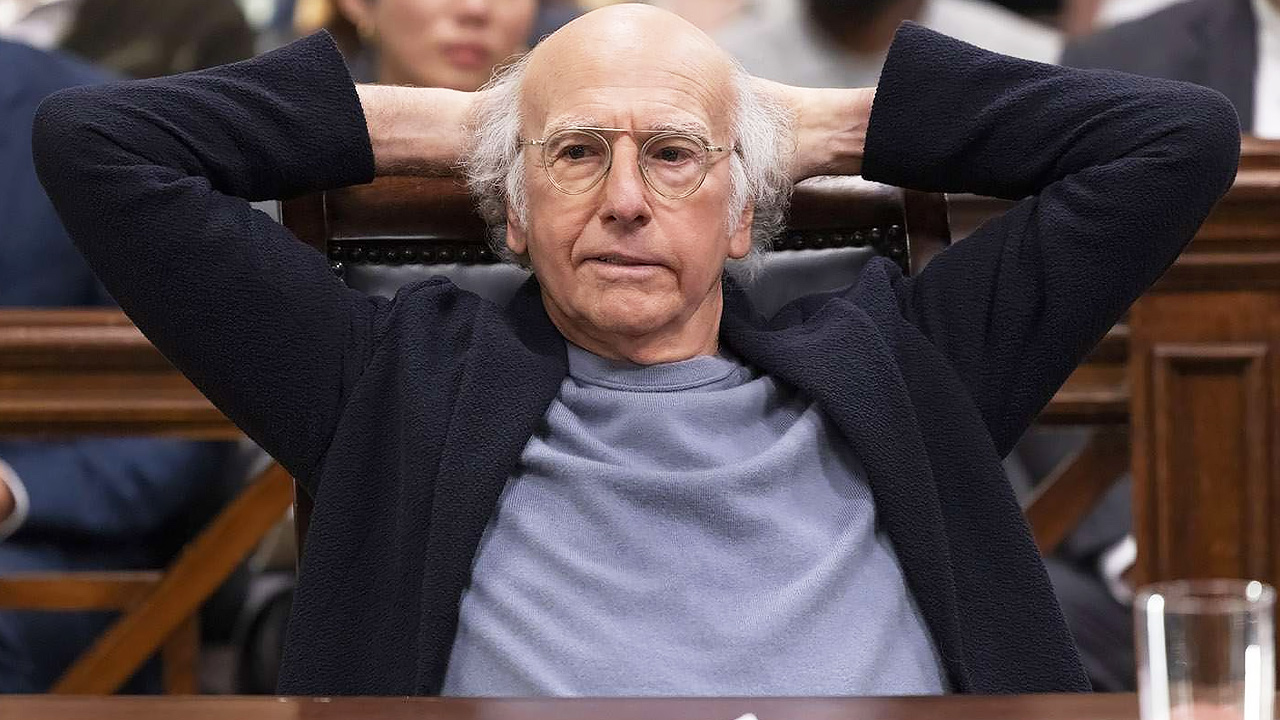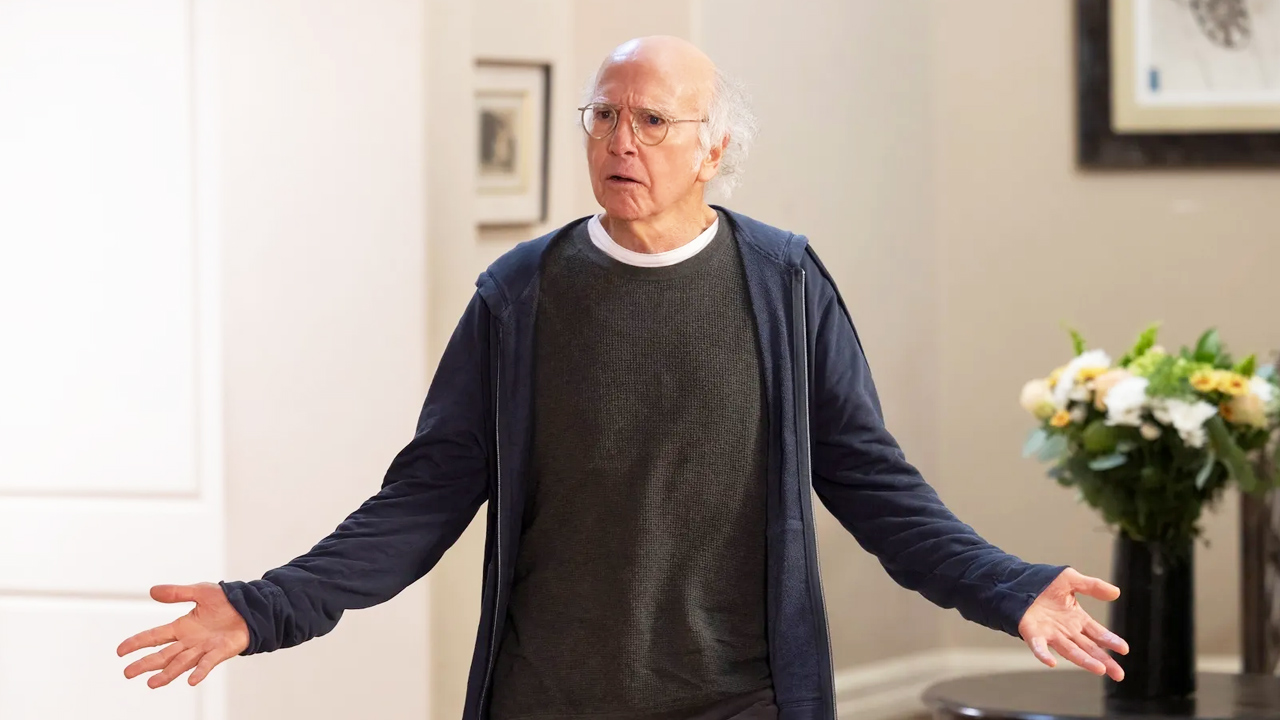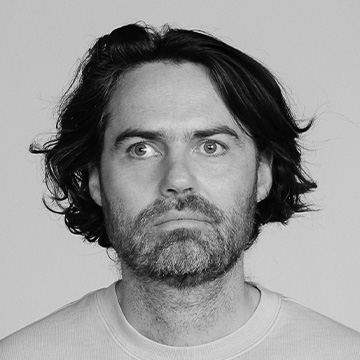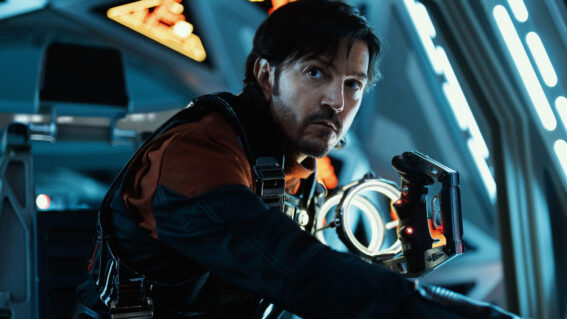The self-reflexive genius of the Curb Your Enthusiasm finale

We’ve finally reached the Larry David Singularity, with Curb‘s very last episode recreating David’s controversial finale to that other legendary sitcom. Luke Buckmaster reckons the grand conclusion was pretty, pretty good: spoilers ahead for how everything wraps up.
Farewell, agitated bald man who argues about everything. We will miss you. The final episode of Curb Your Enthusiasm is filled with the show’s distinguishing features: endless bickering; conversational blowups and to-and-fros that create a word-filled black hole, sucking up all life and energy; the interrogation of social etiquettes, from turning your phone off on the plane to giving way on a freeway exit; David’s hilarious inability to let anything go; and David’s habit of inappropriately inserting himself into uncomfortable subjects (the major one here being suicidal ideation. He finds it difficult to believe Richard could be “suicide-worthy” so he interrogates his girlfriend, who apparently attempted suicide after he tried to break up with her).
There’s a splash of physical comedy tied to David’s vein-bulging cantankerousness: in court he desperately tries to swat a fly, creating a bad look for himself. Early in the episode there’s a gloriously Curb-ish exchange between David and an airline stewardess—the kind of tête-à-tête fans such as myself could soak up until the end of time, triggered when the stewardess declares someone informed her that he hasn’t turned his phone off.
David: Who would do something like that?
Stewardess: I’m not going to disclose that. And your seatbelt’s off.
David: But why won’t you tell me?
Stewardess: Why would I tell you?
David: Because I’d like to know if there’s a squealer on this plane. I’d like to know who it is. I’m not comfortable flying with a squealer.
Stewardess: Sir, you’re not comfortable with a squealer yet you’re asking me to squeal?
David: That’s a different kind of squealing.
Stewardess: That seems very hypocritical.
David: I can see on its face that it does seem that way, but if you examine it, it’s really not.
Stewardess: I’m not gonna squeal on the squealer, OK?
The plotline resolves a season-long arc involving David facing a criminal trial for handing a bottle of water to a woman waiting in line to vote. The courtroom provides a narrative justification for rolling out characters who air grievances about him: for instance Saverio Guerra’s Mocha Joe, who David went to war with in the great “Spite Cafe” episode, and Dana Lee’s Mr. Takahashi, the golf club owner who recalls how David killed his black swan (“the swan attacked me,” David retorts. “It was kill or be killed!”). Even Bruce Springsteen beams in, accusing David of giving him COVID.
If this use of the courtroom as a platform for a greatest hits compilation of memorable moments sounds a little familiar, it’s because David has done this before, very famously so—returning to pen the final episode of Seinfeld after leaving at the end of season seven. Jerry and the gang were also thrust in hot water for breaking an obscure law, finding their own selfish and perhaps borderline nihilistic personalities put on trial, smited characters such as Brian George’s Babu Bhatt and Larry Thomas’ Soup Nazi testifying against them. They of course were thrown in prison: one of television’s most divisive and controversial resolutions.

The sheer audacity of repeating this concept, given the shadow it cast and the extent of the splashback, is something else. David uses his big curtain closer as a déjà vu act, sensationally continuing his characterisation as an own-worst-enemy agitator never able to let things go. Before he arrives in court he delivers the key line, reiterated by the title of the episode (“No Lessons Learned”) to a young boy: “I am 76 years old and I have never learned a lesson in my entire life.” Thus preemptively explaining his return to the courtroom setting, and the verdict. Like Jerry, Elaine, George and Kramer, David is found guilty. Unlike the Seinfeld characters he’s soon released, after Seinfeld himself, no less, manages to get a mistrial declared.
This absurd return to the courtroom is also an act of revisionism; a chance to make the Seinfeld ending right. “This is how we should have ended the finale,” David says to Jerry as he walks out of jail, with an air of uncamouflaged truthfulness. Curb Your Enthusiasm‘s highly satisfying finale folds in on itself, marking one final, deceptively clever act in merging the “real” Larry David and the character of Larry David, their coalescence absolutely critical to this great show’s success. Well played, Mr. David.




















